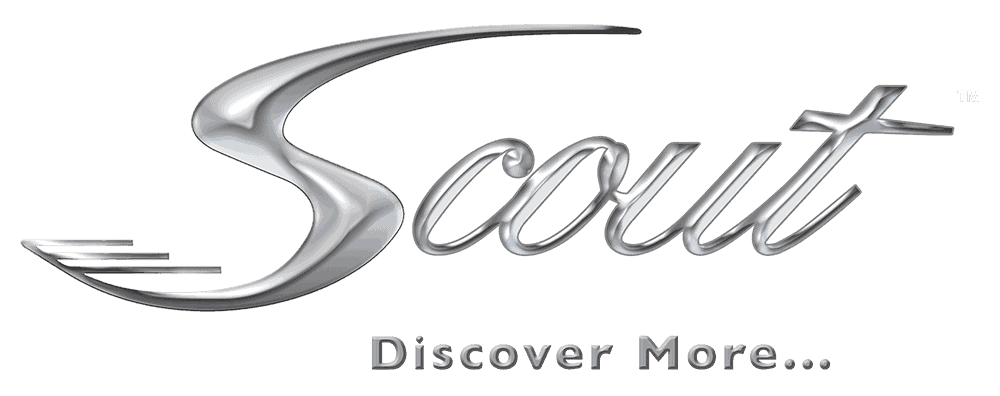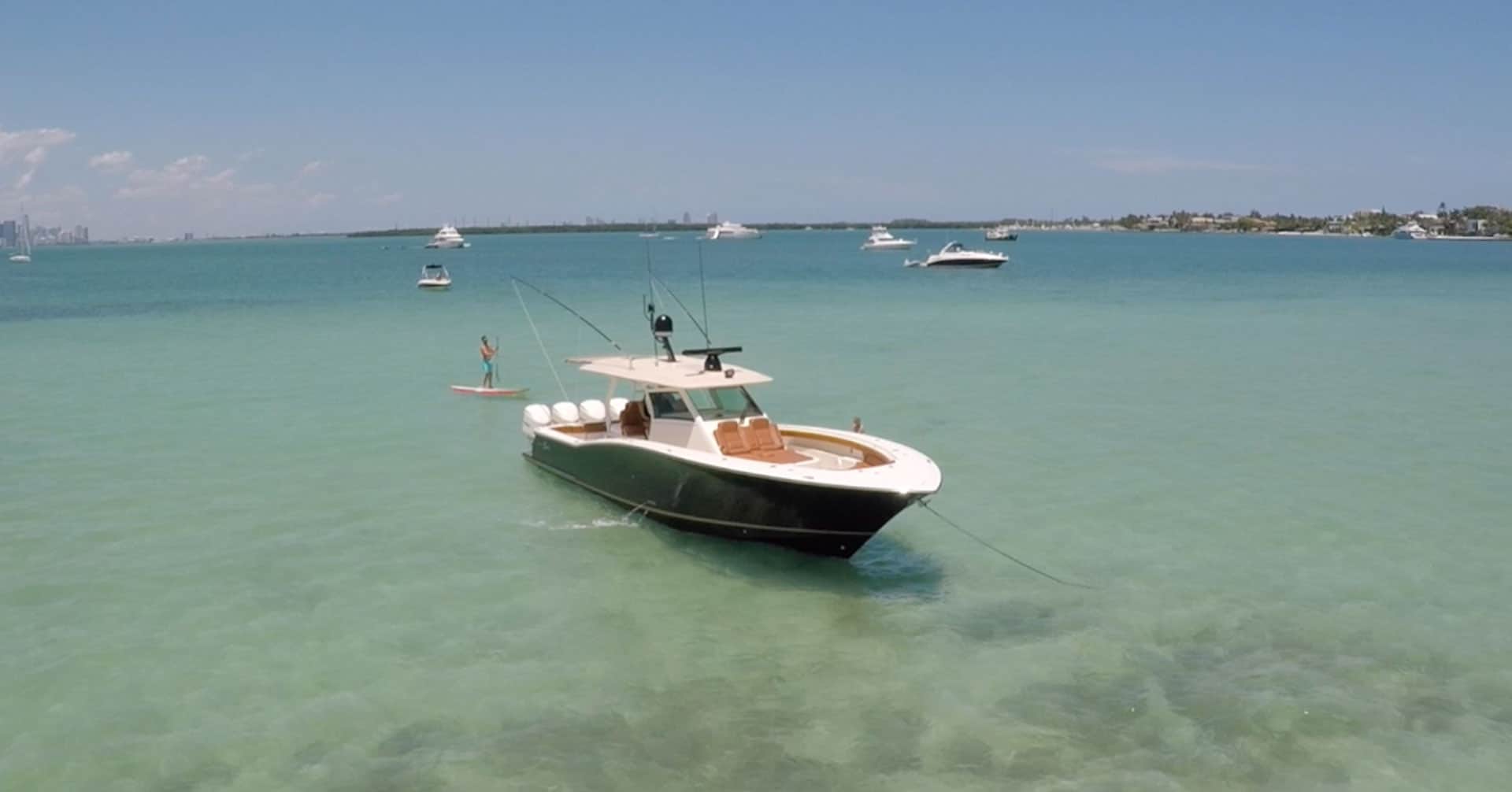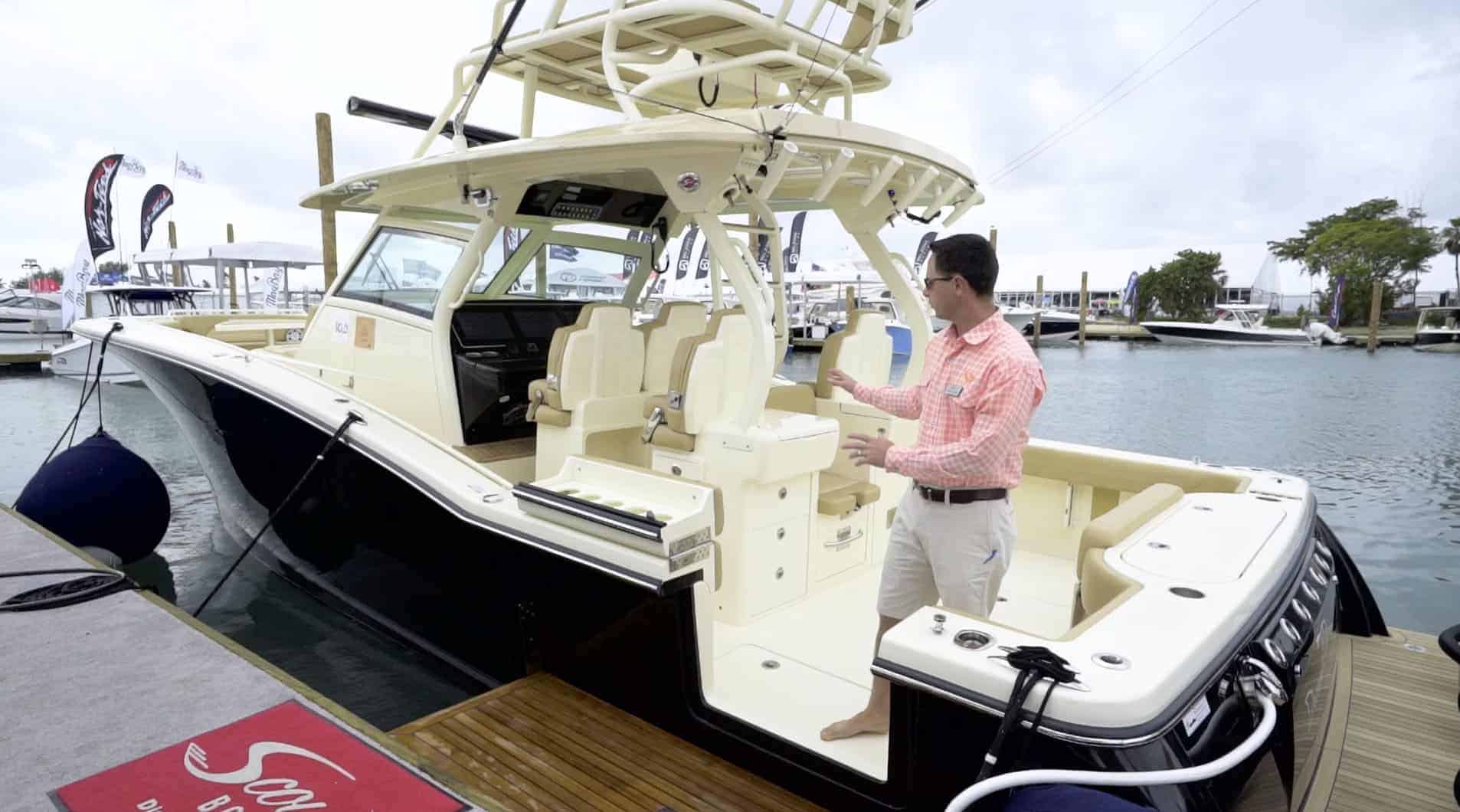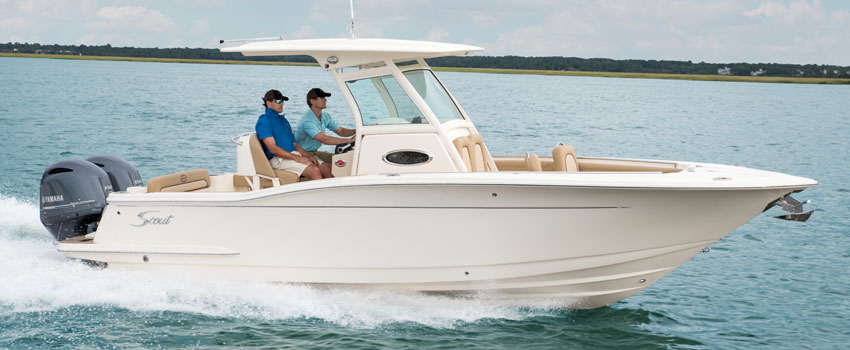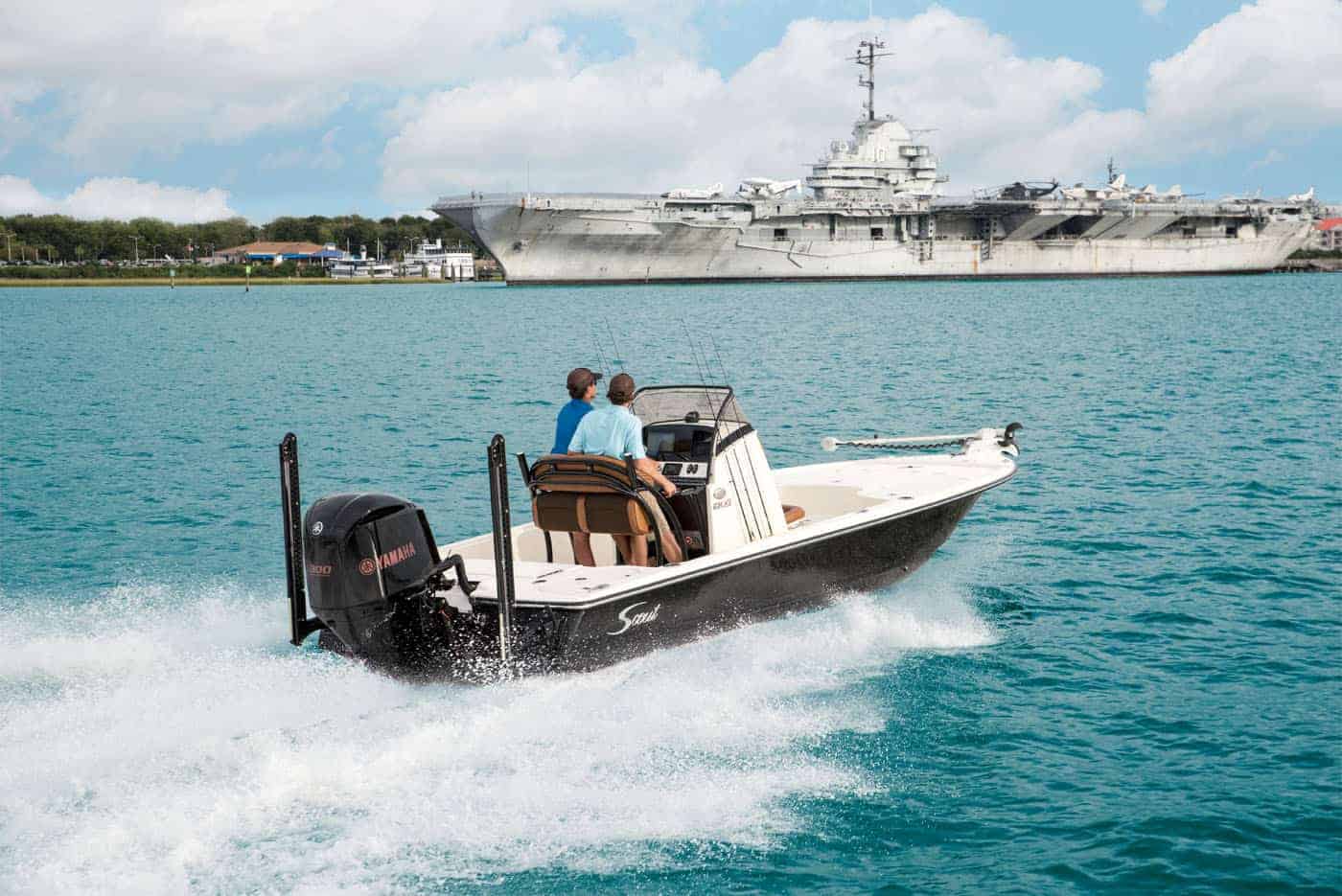
Even without upgrades, Scout boats are some of the finest boats on the water. However, with a few additions, you can increase your boat’s value and enhance your overall personal enjoyment. Scout offers a range of upgrades that you can add to your boat, encompassing enhanced performance, fishing, water sports and more, all to help you get the most out of your boat.
Note: Some of these upgraded are standard, optional, or after-market features, depending on the boat you purchase.
OUTRIGGERS
Outriggers are an offshore angler’s best friend. If you are trolling with lures, it can be easy to get your lines tangled, but outriggers help spread out the distance between lines and help to keep them separated. Rigged with trolling lines set at specific distances, outriggers look a bit like giant fishing rods hanging off the side of the boat. They are designed to not only keep your lines separate but also to help you cover more water and hopefully catch more fish.
TOW HOOKS
You never know when a tow hook is going to come in handy. If you fall victim in a preventable boating accident, for example, you’ll likely thank your stars that you decided to add a tow hook to you boat. When you need to call emergency help, having a tow hook where assistance can tie on could be a potential lifesaver. Tow hooks are also used when the craft is used as a yacht tender, which is a popular use for Scout boats.
SWIM PLATFORMS
The swim platform adds fun and convenience to your aquatic adventures. These platforms, located at the back of the boat, allow easy access to and from the water, making the vessel perfect for swimming, snorkeling, or scuba diving.
SKI PYLONS
Ski pylons raise the connection point between the boat and the ski rope, keeping the rope out of the water and centered behind the vessel. These are extremely popular on ski boats, and they can be used to enhance wake boarding, tubing, and other water sports. If you’re going to use your boat mostly for water sports, a ski pylon is a must.
POWER POLE ANCHORS
If you’ve ever seen a bass boat with two short rods sticking up on either side of the motor, then you’ve also seen power pole anchors. These hydraulically-powered rods lower into the water, allowing the boat to stay in position in shallow depths, usually no more than three or four feet. They are extremely handy for anyone fishing in shallow areas, including intertidal locations or weed beds.
TRIM TABS
Anyone who’s driven a small or medium-sized boat has experienced the problem of bow-rise. This is when you accelerate the boat and the front lifts high above the water, blocking your forward view until it planes out. While this is a common issue, trim tabs, which are short tabs at the back of the boat, help alleviate the problem by reducing how high the front will rise. This helps you get to plane quicker, allows you to plane at lower speeds, and can correct listing on either side.
CREATE THE RIGHT BOAT FOR YOUR NEEDS
From large cruising boats to small fishing crafts, Scout Boats has the right luxury fishing boat to suit your needs!
Use our online boat customizer to build the best boat for your needs today!
